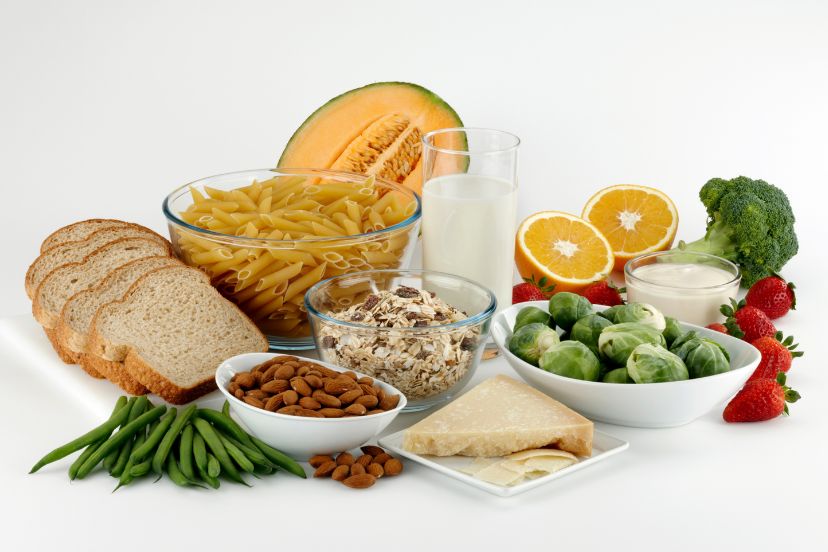Common Food Intolerances: A Personal Perspective
Introduction:
Have you ever experienced discomfort, bloating, or digestive issues after a meal? You’re not alone. Many individuals, myself included, have discovered that certain foods don’t agree with their bodies. These adverse reactions are often due to food intolerances, which can significantly impact our overall well-being. In this article, I will share my personal journey with common food intolerances, offering helpful suggestions and reasons behind them. Together, let’s explore the intricacies of food intolerances and learn how to navigate them.
My Personal Struggle with Food Intolerances
Food intolerances have been a recurring challenge in my life, causing various unpleasant symptoms. Over time, I began to notice patterns between certain foods and my body’s adverse reactions. This realization prompted me to delve deeper into the world of common food intolerances, seeking a better understanding of the underlying causes.
Unveiling the Symptoms of Food Sensitivity
Identifying the symptoms of food sensitivity is crucial in recognizing the presence of a potential intolerance. While these symptoms can vary from person to person, some common signs include bloating, gas, diarrhea, constipation, skin issues, headaches, and fatigue. Paying close attention to how your body responds after consuming different foods can help pinpoint potential triggers.
The Elimination Diet: A Valuable Tool
To identify specific food intolerances, I embarked on an elimination diet. This method involves removing potential trigger foods from your diet and reintroducing them systematically to observe any adverse reactions. During this process, keeping a food journal is essential, as it helps track your meals, symptoms, and potential correlations.
Gluten Intolerance: A Common Culprit
Gluten intolerance, also known as celiac disease, affects a significant number of individuals worldwide. This intolerance occurs when the body’s immune system reacts to gluten, a protein found in wheat, barley, and rye. Symptoms can range from digestive issues to skin problems and even neurological symptoms. If you suspect gluten intolerance, it’s vital to consult a healthcare professional for proper diagnosis and guidance.
Lactose Intolerance: A Dairy Dilemma
Lactose intolerance is another prevalent food intolerance. It arises from the body’s inability to digest lactose, a sugar found in dairy products. Symptoms may include bloating, diarrhea, and stomach cramps after consuming lactose-containing foods. Exploring lactose-free alternatives or opting for lactase supplements can help manage this intolerance.
Other Common Food Intolerances
In addition to gluten and lactose intolerance, there are several other common food intolerances worth exploring. These include:
Fructose Intolerance: The Fruity Foe
Fructose intolerance occurs when the body has difficulty absorbing fructose, a sugar found in fruits, honey, and certain vegetables. Symptoms may include abdominal pain, bloating, and diarrhea. Limiting high-fructose foods and opting for alternatives can alleviate these symptoms
Histamine Intolerance: Beyond Allergies
Histamine intolerance is characterized by the body’s inability to break down histamine, a compound found in certain foods. This intolerance can lead to symptoms such as headaches, nasal congestion, and skin rashes. Identifying histamine-rich foods and reducing their consumption can help manage this intolerance.
FODMAP Intolerance: Tackling Fermentable Carbs
FODMAP intolerance involves difficulty digesting fermentable carbohydrates, such as certain fruits, vegetables, and grains. Symptoms often include bloating, gas, and stomach pain. Following a low-FODMAP diet and gradually reintroducing foods can help identify specific triggers and alleviate symptoms.
Soy and Corn Intolerance: Unraveling Hidden Sensitivities
Some individuals may experience intolerances to soy or corn, which can lead to digestive issues, skin problems, or allergic reactions. Careful label reading and choosing alternatives can assist in managing these intolerances.
Tips for Managing Food Intolerances
Living with food intolerances can be challenging, but with the right strategies, it becomes more manageable. Here are some suggestions based on my personal experience:
Educate Yourself and Seek Professional Guidance
Understanding the intricacies of food intolerances is essential. Educate yourself about different intolerances, their symptoms, and potential triggers. Additionally, consult a healthcare professional or registered dietitian for an accurate diagnosis and personalized advice.
Adopt an Elimination Diet
Consider embarking on an elimination diet under the guidance of a healthcare professional. By systematically eliminating and reintroducing foods, you can identify your specific triggers and make informed choices about your diet.
Keep a Detailed Food Journal
Maintaining a food journal is crucial in tracking your meals, symptoms, and potential correlations. This record will provide valuable insights into your body’s reactions and help you identify specific trigger foods.
Opt for Whole Foods
Focus on incorporating whole, unprocessed foods into your diet. These are generally less likely to cause adverse reactions and provide essential nutrients for overall health.
Read Labels Carefully
Become a vigilant label reader. Pay attention to ingredients lists to identify potential trigger foods or hidden sources of intolerances.
Explore Alternative Options
Thankfully, there are numerous alternative options available for individuals with food intolerances. From gluten-free flours to lactose-free dairy alternatives, explore and experiment with different products to find suitable substitutes.
Conclusion:
Living with common food intolerances can be a daunting task, but it doesn’t mean sacrificing taste or enjoyment. By understanding your body’s unique needs, educating yourself about potential triggers, and seeking professional guidance, you can successfully manage and navigate food intolerances. Remember, everyone’s journey is different, so be patient and persistent in finding what works best for you.
FAQs:
Q1: Can food intolerances develop suddenly?
A1: Yes, it is possible for food intolerances to develop suddenly. Certain factors such as changes in gut health, stress, or underlying medical conditions can trigger the onset of food intolerances.
Q2: Can food intolerances be cured?
A2: Unlike food allergies, food intolerances cannot be cured. However, managing them through dietary adjustments and lifestyle changes can significantly reduce symptoms and improve overall well-being.
Q3: Can food intolerances cause weight gain?
A3: Food intolerances are more likely to cause bloating and discomfort rather than weight gain. However, some individuals may experience weight fluctuations due to the body’s inflammatory response to trigger foods.
Q4: Can children have food intolerances?
A4: Yes, children can have food intolerances. It is important to monitor their symptoms and consult a pediatrician or allergist if you suspect your child has a food intolerance.
Q5: Can food intolerances be diagnosed through testing?
A5: While there are tests available for some food intolerances, such as lactose intolerance, many intolerances are diagnosed through elimination diets and careful observation of symptoms. Consult a healthcare professional for accurate diagnosis and guidance.




